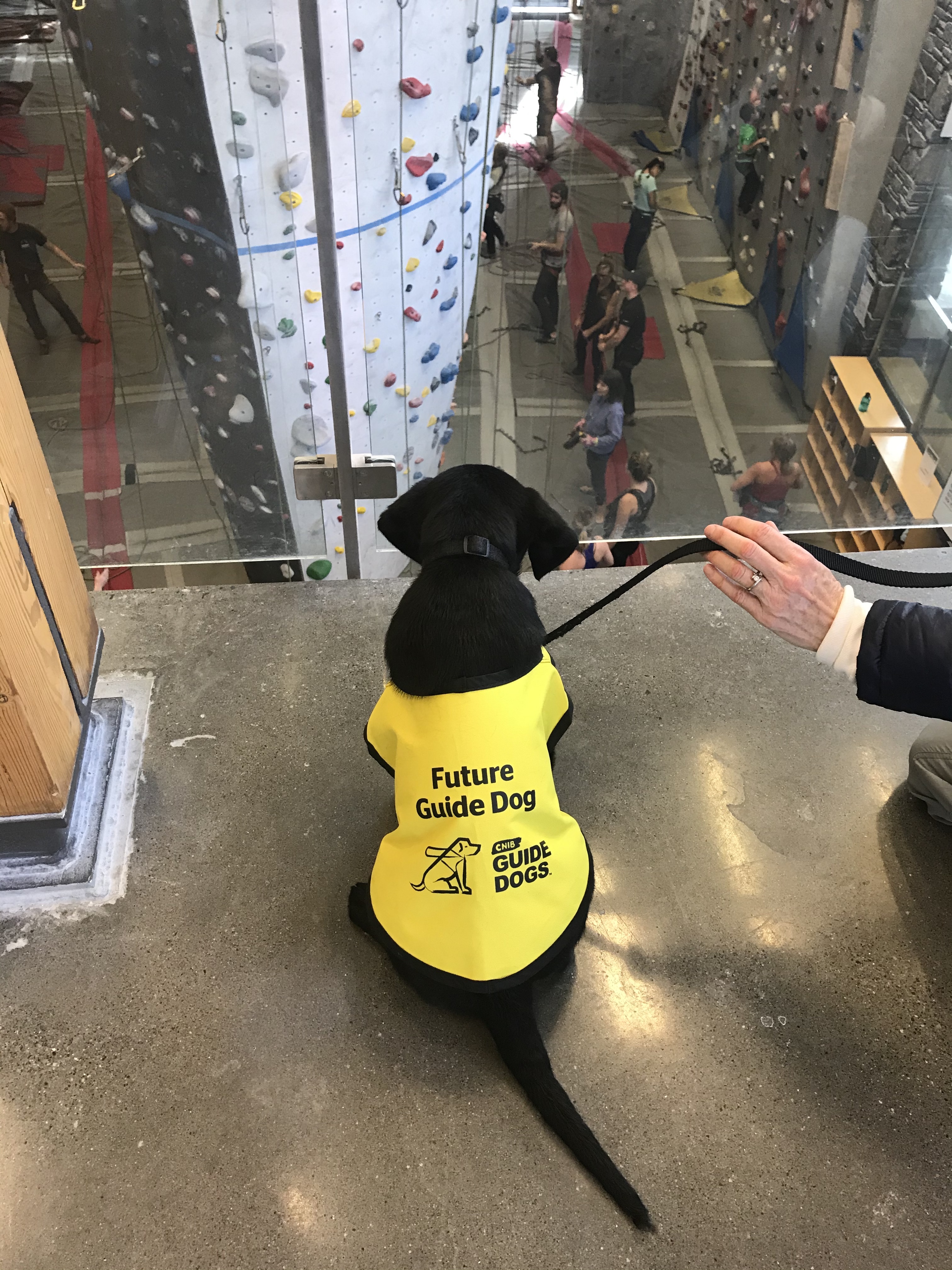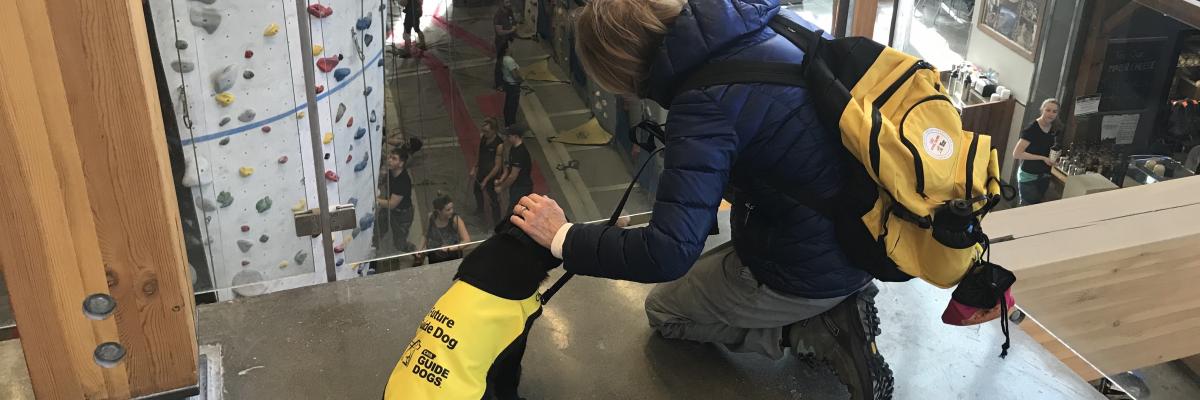
By Kezia Gray, Puppy Raising Supervisor
It is critical that a puppy’s raiser or guardian is extra careful when exposing their dog to the world. The goal is for the puppy to have lots of positive experiences without being overwhelmed. This helps the puppy to see the world as a safe place and helps build up his or her confidence so they can thrive.
All puppies experience two periods of fear throughout their lives with varying degrees of intensity. This is when puppies are more hyper aware of their surroundings and deem things in the environment to be safe or unsafe.
The first fear period occurs between the first eight to 11 weeks of the puppy’s life. Some puppies will be more wary than others, but all will go through this first fear period during the critical learning phase.
While many are familiar with the first fear period, some are surprised to hear puppies can experience a second. This usually occurs between six to 14 months of age but not all puppies experience the second fear period as obviously as others.
Unfortunately, there are no obvious warning signs to indicate when your pup will experience the second fear period. However, there are some behavioural indicators to watch out for:
- sudden reactions to things that weren't previously noticed
- seeks attention more than usual
- becomes easily startled
- becomes more vigilant
- reacts with hyperactivity for no apparent reason
If your puppy is experiencing the second fear period, don’t fret. Take some steps back with his or her socialization and work on building up confidence at their own pace.
First, try to figure out what your pup is reacting to. It may be a certain environment, noise, object or person. Once this is determined, begin socializing him or her as if they were a new puppy again. Take things slowly – particularly with what is causing their fear – and allow time to relax and gain back their confidence. Most dogs will return to their usual self after two to eight weeks of gentle exposure.
